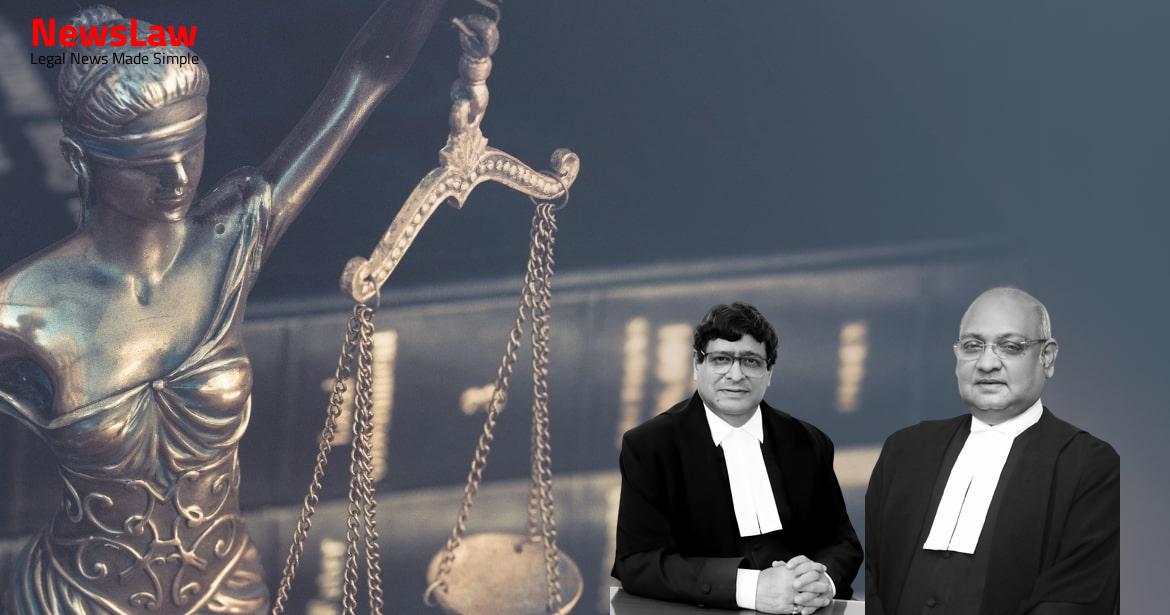In a significant legal development, the Supreme Court of India has delivered a verdict in the case of Bank of India vs. B. Karunakar, addressing the issue of payment during suspension. The case revolves around the entitlement to salary during suspension, specifically when the penalty imposed is reduced from dismissal to a reduction in the time scale of pay. Stay tuned for insightful analysis and implications of this ruling.
Facts
- The Appellant challenged the order of suspension by filing a Writ Petition, directing the bank to complete the inquiry within four months.
- The Appellant was accused of misconduct and faced charges related to non-compliance, unauthorized absence, and working against the bank’s interest.
- The High Court refused to grant reinstatement to the Appellant after being placed under suspension.
- The Appellant submitted replies to the charge sheets and filed a Writ Petition challenging the dismissal order, which was not entertained by the High Court.
- The Appellant’s appeal against dismissal was initially dismissed by the Board of Directors, but successful in challenging it before the High Court.
- A fresh order was directed to be passed by the Appellate Authority on the quantum of punishment after a Writ Petition was filed against dismissal.
- The Board of Directors dismissed the appeal on reconsideration, leading to the issuance of a show cause notice to the Appellant.
- An inquiry report was submitted by the Inquiry Officer, followed by the dismissal of the Appellant from service without benefits under Regulations.
- The Appellant continued to challenge the dismissal through appeals and submissions to higher authorities.
- The Disciplinary Authority initially imposed a penalty of reduction of 15 stages lower in the time scale of pay for eight years.
- The High Court ordered a reconsideration of the penalty, leading to a modification to 10 stages lower in the time scale of pay for six years.
- The Appellate Authority dismissed the appeal filed by the Appellant against the modified penalty.
- A committee recommended reducing the penalty to 15 stages lower in payment for eight years, which was later accepted by the Board of Directors.
- The Board of Directors imposed this reduced penalty on the Appellant in 2012, who retired later that year.
- The High Court upheld the Appellate Authority’s decision and found the imposed penalty to be proportionate to the misconduct.
- The High Court directed the Disciplinary Authority to re-examine the matter despite the Appellant’s challenge through a Writ Petition.
Also Read: DHFL Moratorium: Depositor Rights & RBI Intervention
Arguments
- Senior Counsel argued that the Appellant should receive salary during suspension as dismissal order was replaced with lesser punishment.
- Counsel contended that the principle of ‘no work no pay’ does not apply in this case.
- The Appellant was not exonerated on the charge, as the Disciplinary Authority only reduced the penalty from dismissal to a reduction in the time scale of pay.
- Mr. Rajesh Kumar-I, representing the Bank, argued that this reduction in penalty does not entitle the Appellant to claim full salary for the period of suspension.
- Citing the case of Managing Director, ECIL, Hyderabad And Others v. B. Karunakar and Others, it was emphasized that entitlement to full salary during suspension is contingent on the order of penalty being set aside and the charged employee being held not guilty of any charges.
Also Read: State of Karnataka v. [Respondent]
Analysis
- Reduction of penalty from dismissal to reduction in time scale of pay does not absolve the Appellant of the charges against him.
- The dismissal order was overturned, and the punishment of pay reduction was imposed on the Appellant.
- The Inquiry Officer’s findings of proven charges against the Appellant remain unchanged.
- Disciplinary Authority holds that the Appellant is not entitled to any payment for a specific period.
- The decision on how the period of suspension will be treated lies with the Disciplinary Authority.
- Reinstatement as a consequence of a lesser punishment does not automatically entitle the employee to back-wages, continuity of service, or consequential benefits.
- Awarding back wages for the period of suspension may be seen as rewarding the delinquent employee and punishing the employer for taking action against misconduct.
- Courts and Tribunals must consider the facts and circumstances before directing continuity of service and other benefits upon reinstatement.
- Granting automatic continuity of service and consequential benefits upon reinstatement can have disastrous effects, such as promoting individuals who lack the necessary experience for higher duties.
Also Read: Legal Analysis of Entrance Exam Regulations in AYUSH Courses
Decision
- Another charge sheet issued on 30.05.2003
- Charges framed for violating bank discipline
- Appeal dismissed
Case Title: OM PAL SINGH Vs. DISCIPLINARY AUTHORITY (2020 INSC 40)
Case Number: C.A. No.-000176-000176 / 2020



